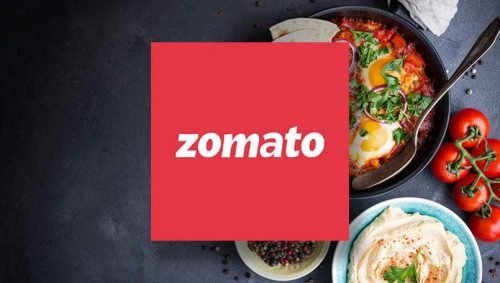Zomato, the food delivery platform, has received a Good and Services Tax (GST) notice for a tax amount of 401.7 crore. The Directorate General of GST Intelligence (DGGI) issued tax notifications to Zomato and Swiggy for failing to pay GST on delivery charges, stating that delivery expenses fell under the services category and the companies must pay 18% GST.
This comes months after Zomato’s rival Swiggy was sent a show cause notice requesting a GST on delivery costs worth hundreds of crores.
Zomato, on the other hand, reacted to the notification on Wednesday, stating that the firm is “not liable to pay any tax” on the delivery costs because the payment is collected by the meal delivery app on behalf of the delivery partners.
The show cause letter served on Zomato requested the Gurugram-based firm to explain why it had not paid an alleged tax bill of over 401.7 crore, plus interest and penalties.
Zomato’s answer to the 401.7 crore GST demand
In response to the show cause notice issued by the Director General of GST Intelligence, Gurugram-based firm Zomato stated that it is not required to pay the 401.7 crore GST on delivery charges.

The company claimed that the delivery charges are collected by the app on behalf of the partners, and the mutually agreed-upon terms state that the delivery partners, not Zomato, have provided the delivery services to the clients. The food delivery company’s notice continues, “This is also supported by opinions from our external legal and tax advisors. The Company will respond appropriately to the SCN.”
Since January 1, 2022, food delivery platforms like as Zomato and Swiggy have been required to pay GST to the Centre on behalf of eateries for purchases made through the app. However, the Centre did not clarify the delivery price.
Expert’s say into to the matter
In cases where the firm only enables the collection of delivery costs on behalf of third-party partners, liability to GST is based on the income or turnover received by such third-party partners, which is capped at Rs 20 lakh for services. On the other hand, if a firm uses its own personnel to transport meals to consumers, it might be considered that the company provides delivery services to customers and, as a result, must discharge GST.

According to Nitin Jain, Partner at SW India, the GST department’s demand on Zomato is based on the issue of whether the delivery of items is a platform service or a recovery of costs on behalf of gig workers. “Considering the contractual arrangement, the delivery fee is for an independent service to the customer and hence, is the revenue of service providers but not of the platform. Since most of these gig workers are likely to be out of the tax net, this could be an indirect attempt to recover taxes by the GST department,” he said.
Jain continued, “If the government wishes to collect taxes on these charges, they should amend the law prospectively to accelerate the liability on e-commerce platforms, similar to what has been done in the case of restaurant services or passenger transport services.” The food services that restaurants offer, including eating in and takeout, are also subject to a 5% GST.
Effect of the notice on the company
Zomato Ltd.’s shares experienced a significant decline during Thursday’s trading session following to the online food aggregator being issued a show cause notice by the Pune Zonal unit of the Directorate General of GST Intelligence. Zomato was sent with a show cause notice, in which it was requested to explain why it had not paid an alleged tax bill of Rs 401.7 crore, interest, and penalties.

The stock dropped 5% to a day low of Rs 120.70 on Thursday. At current pricing, the stock is down 8.39% from its one-year high of Rs 131.75, which was reached earlier this month on December 19. Despite the noted decline, the multibagger stock has risen 172.15% from its 52-week low of Rs 44.35 on January 25 of this year. Support on the counter might be observed at around Rs 115 on technical charts. On the plus side, a convincing close above Rs 130 can only signal the start of the next round of gains.
According to Osho Krishan, Senior Research Analyst – Technical & Derivatives at Angel One, “Zomato has been hovering in the cycle of higher highs – higher lows on a broader time frame.” The stock is expected to see blips in the near term, but there is no need to be concerned as long as it remains around the Rs 115-112 range. On the higher end, Rs 130 is expected to operate as an immediate barrier, and a significant rise would only ignite the next phase of the rally in the near term.”











Comments 1